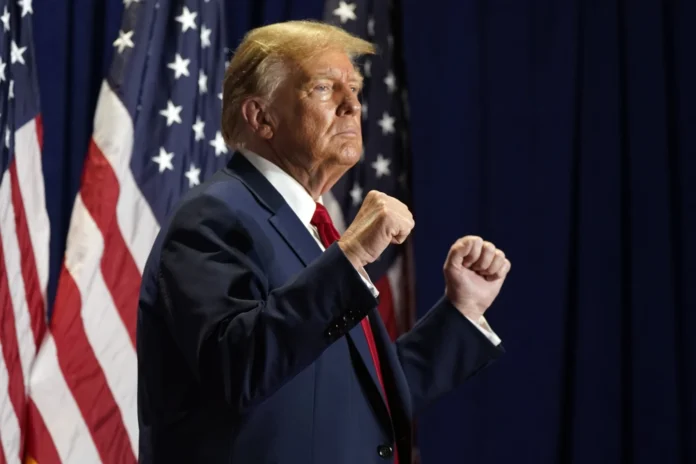The justices, in their ruling just before Super Tuesday primaries, emphasized that states lacked the authority to exclude presidential candidates using a post-Civil War constitutional provision. According to an unsigned opinion from the court, the responsibility for determining ballot eligibility rests with Congress.
Reacting to the decision, Trump took to social media to express his delight, calling it a “BIG WIN FOR AMERICA!!!”
The ruling effectively puts an end to efforts in several states, including Colorado, Illinois, and Maine, to remove Trump, the leading contender for the Republican nomination, from the ballot due to his actions following the 2020 election defeat and the subsequent Capitol attack.
While expressing disappointment, Colorado Secretary of State Jena Griswold acknowledged Trump’s eligibility as a candidate in Colorado’s 2024 Presidential Primary.
The case marked the Supreme Court’s first encounter with a provision of the 14th Amendment aimed at barring former officeholders who “engaged in insurrection” from holding office again. The Court avoided addressing the issue of insurrection in its ruling, leaving questions about Congress’s authority to disqualify candidates under Section 3 of the amendment.
Despite unanimous agreement on Trump’s ballot eligibility, there were differing opinions among the justices regarding Congress’s role in disqualifying candidates for federal office.
The decision brings about uncertainties regarding the extent of Congress’s power to enforce Section 3 and its potential impact on future presidential elections.
Trump had been removed from the ballots in Colorado, Maine, and Illinois, pending the Supreme Court’s decision.
The swift resolution of the case underscores its significance, with implications for Trump’s political future and ongoing legal battles, highlighting the Supreme Court’s critical role in shaping American electoral processes.
The arguments presented in February marked the first time the high court had heard a case involving Section 3 of the 14th Amendment.
Conservative and liberal justices raised questions about the case against Trump, particularly regarding whether Congress must act before states can invoke the 14th Amendment and whether the president is covered by the provision.
As the legal landscape continues to evolve, questions remain about the timing and implications of Trump’s potential criminal prosecution and his electoral prospects in the coming years.






